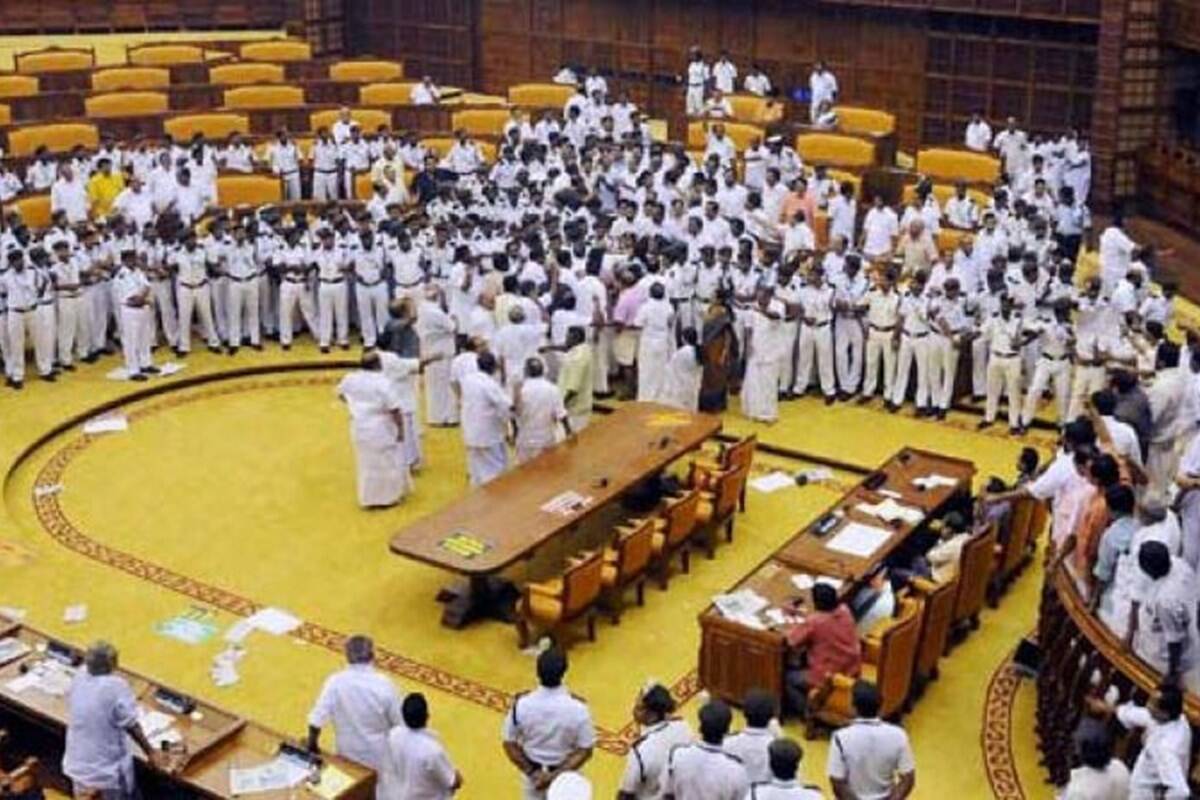The Supreme Court on Wednesday held that privileges and immunities granted to legislators can’t be used to claim exemption from the law of the land, as it dismissed Kerala government’s plea seeking the court’s nod to withdraw cases against CPI-M leaders, including present Education Minister V. Sivankutty, for vandalism in the Assembly in 2015, when the party was in opposition.
A bench of Justices D.Y. Chandrachud and M.R. Shah said: “Committing acts of destruction of public property cannot be equated with either the freedom of speech in the legislature or with forms of protest legitimately available to the members of the opposition.”
Advertisement
The bench observed the members of the state legislature have, in their character as elected representatives, a public trust impressed upon the discharge of their duties.
“Allowing the prosecution to be withdrawn would only result in a singular result, which is that the elected representatives are exempt from the mandate of criminal law. This cannot be countenanced as being in aid of the broad ends of public justice,” said Justice Chandrachud, who wrote the 74-page judgment on behalf of the bench.
The bench stressed that no member of an elected legislature can claim either a privilege or immunity to stand above the sanctions of the criminal law, which applies equally to all citizens.
“Privileges and immunities are not gateways to claim exemptions from the general law of the land, particularly as in this case, the criminal law which governs the action of every citizen,” said the court.
It stressed that a claim seeking exemption from criminal law would betray the trust, which is impressed on the character of elected representatives as the makers and enactors of the law. The top court pointed the persons, named as the accused, held a responsible elected office as MLAs in the Legislative Assembly.
“Like any other citizen, they are subject to the boundaries of lawful behaviour set by criminal law,” it added.
The court emphasised the freedom of speech in Parliament and the state legislatures were to ensure elected representatives can perform their duties and functions effectively, and these privileges bear a functional relationship to the discharge of the functions of a legislator and are not a mark of status which makes legislators stand on an unequal pedestal.
“We miss the wood for the trees if we focus on rights without the corresponding duties cast upon elected public representatives,” it noted.
The court said the public prosecutor in the case filed an application for withdrawal of prosecution on a misconception that Article 194 provided privileges and immunities to the MLAs from the general application of the criminal law. It said it would not disturb concurrent findings of the high court and the trial court, which ruled against the withdrawal of prosecution.
The court also rejected the contention that the prosecution against the respondent accused is vitiated for want of sanction of the Speaker.
The MLAs had damaged furniture and articles including the Speaker’s chair, computer, mike, emergency lamp and electronic panel, causing a loss of Rs 2.20 lakh, during their protest as opposition leaders in 2015.











